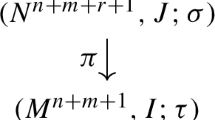Abstract
The problem of synthesis of an asymptotically stable polynomial on the basis of the initial unstable polynomial is solved. For the purpose of its solution, the notion of the extended (complete) root locus of a polynomial is introduced, which enables one to observe the dynamics of all its coefficients simultaneously, to isolate the root-locus trajectories, along which values of each coefficient change, to establish their interrelation, which provides a way of using these trajectories as “conductors” for the movement of roots in the desired domains. Values of the coefficients that ensure the stability of a polynomial are chosen from the stability intervals found on the stated trajectories as the nearest values to the values of appropriate coefficients of the unstable polynomial or by any other criterion, for example, the criterion of provision of the required stability reserve. The sphere of application of the root locus, which is conventionally used for synthesis of characteristic polynomials through the variation of only one parameter (coefficient) of the polynomial, is extended for the synthesis of polynomials by way of changing all coefficients and with many changing coefficients. Examples of application of the developed algorithm are considered for the synthesis of stable polynomials with constant and interval coefficients.
Similar content being viewed by others
References
Besekerskii, V.A. and Popov, E.P., Teoriya system avtomaticheskogo upravleniya (Theory of Automatic Control Systems), St. Petersburg: Professiya, 2003.
Dorf, R. and Bishop, R., Modern Control Sustems, New Jersey: Prentice Hall, 2001. Translated under the title Sovremennye sistemy upravleniya, Moscow: Lab. Bazovykh Znanii, 2004.
Kuzovkov, N.T., Modal’noe upravlenie i nablyudayushchie ustroistva (Modal Control and Observing Devices), Moscow: Mashinostroenie, 1976.
Teodorchik, K.F., Trajectories of Roots of the Characteristic Equations of the Third-Order System with a Continuous Change of the Free Term and the Maximum Attainable Stability in this Case, Zh. Teor. Fiz., 1948, issue 11, vol. XVII, pp. 1394–1398.
Ewans, W.R., Graphical Analysis of Control Systems, Trans. AIEE, 1948, vol. 67, pp. 547–551.
Rimskiy, G.V. and Taborovets, V.V., Avtomatizatsiya issledovanii dinamicheskikh system (Automation of Research of Dynamic Systems), Minsk: Nauka Tekh., 1978.
Ankhimyuk, V.L., Opeiko, O.F., and Mikheev, N.N., Teoriya avtomaticheskogo upravleniya (Theory of Automatic Control), Minsk: DizainPRO, 2002.
Polyak, B.T. and Shcherbakov, P.S., Robastnaya ustoichivost’ i upravlenie (Robust Stability and Control), Moscow: Nauka, 2002.
Kharitonov, V.L., On Asymptotic Equilibrium Position Stability of the Set of Systems of Linear Differential Equations, Diff. Uravn., 1978, vol. XIV, no. 11, pp. 2086–2088.
Polyak, B.T. and Tsypkin, Ya.Z., Frequency Criteria of Robust Stability and Aperiodicity of Linear Systems, Autom. Remote Control, 1990, no. 9, part 1, pp. 1192–1200.
Tsypkin, Ya.Z. and Polyak, B.T., Frequency Criteria of Robust Modality of Linear Discrete Systems, Avtomatika, 1990, no. 5, pp. 3–9.
Polyak, B.T. and Tsypkin, Ya.Z., Robust Stability under Complex Perturbations of Parameters, Autom. Remote Control, 1991, no. 8, part 1, pp. 1069–1077.
Barmish, B.R., Invariance of the Strict Hurwitz Property for Polynomials with Perturbed Coefficients, IEEE Trans. Automat. Control, 1984, vol. 29, no. 10, pp. 935–936.
Soh, C.B., Berger, C.S., and Dabke, K.P., On the Stability Properties of Polynomials with Perturbed Coefficients, IEEE Trans. Automat. Control, 1985, vol. 30, no. 10, pp. 1033–1036.
Bartlett, A.C., Hollot, C.V., and Lin, H., Root Location of an Entire Polytope of Polynomials in Surfaces to Check the Edges, Math. Control, Signal., Syst., 1987, vol. 1, no. 1, pp. 61–71.
Barmish, B.R. and Tempo, R., The Robust Root Locus, Automatica, 1993, vol. 26, pp. 183–192.
Nesenchuk, A.A., Analiz i sintez robastnykh dinamicheskikh system na osnove kornevogo podkhoda (Analysis and Synthesis of Robust Dynamic Systems on the Basis of the Root Approach), Minsk: OIPI NAN Belarus, 2005.
Nesenchuk, A.A., Parametric Synthesis of Interval Control Systems Using Root Loci of Kharitonov’s Polynomials, Proc. Eur. Control Conf., Germany, Karlsruhe, 1999.
Kraev, A.I. and Fursov, A.S., Estimation of Instability Radii of Polynomials of the Arbitrary Degree, in Nelineinaya dinamika i upravlenie (Nonlinear Dynamics and Control), Emel’yanov, S.V. and Korovin, S.K., Eds., Moscow: FIZMATLIT, 2004, issue 4, pp. 127–134.
Author information
Authors and Affiliations
Additional information
Original Russian Text © A.A. Nesenchuk, 2010, published in Avtomatika i Telemekhanika, 2010, No. 8, pp. 13–23.
Rights and permissions
About this article
Cite this article
Nesenchuk, A.A. The root-locus method of synthesis of stable polynomials by adjustment of all coefficients. Autom Remote Control 71, 1515–1525 (2010). https://doi.org/10.1134/S0005117910080023
Received:
Published:
Issue Date:
DOI: https://doi.org/10.1134/S0005117910080023




